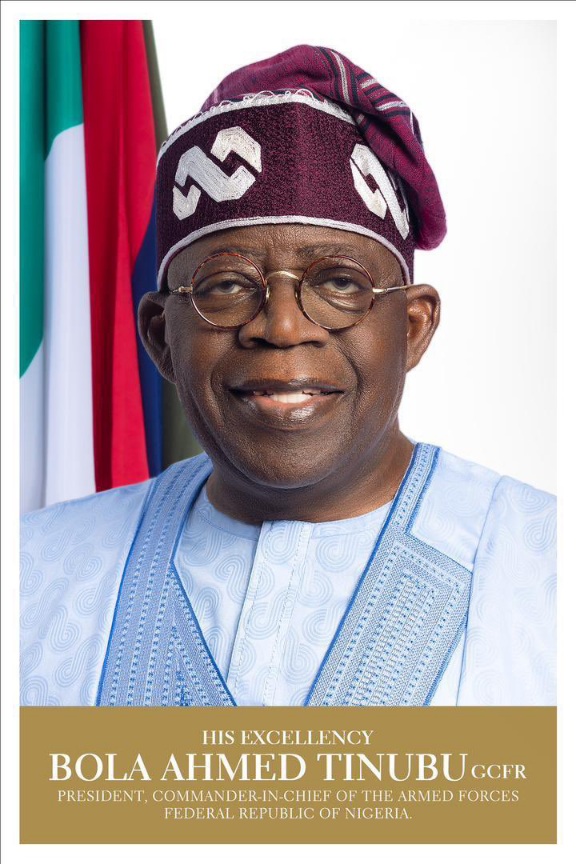Segun Atanda/
President Bola Ahmed Tinubu marked the second anniversary of his administration yesterday with a bold declaration that Nigeria is “on course to building a greater, more economically stable nation,” as he highlighted sweeping reforms, key economic gains, and renewed hope for national transformation.
In a statement commemorating his administration’s two-year milestone, President Tinubu struck a tone of optimism, thanking Nigerians for their resilience and reaffirming that the painful but necessary reforms undertaken since he assumed office in 2023 were yielding positive results.
“Our economic reforms are working,” he stated. “We are halfway through the journey that began 24 months ago… and we have made undeniable progress.”
Bold Reforms, Measurable Results
Upon assuming office, Tinubu scrapped decades-long fuel subsidies and unified the foreign exchange regime—controversial moves that sparked immediate economic discomfort but were, according to him, necessary to avert a fiscal crisis.
Now, two years later, the President cited significant improvements: inflation is easing, staple food prices are dropping, and investor confidence in the oil and gas sector has surged—with over $8 billion in new investments and rig activity up 400% from 2021.
Nigeria’s fiscal position is also improving. Tinubu reported that the country’s fiscal deficit has narrowed from 5.4% of GDP in 2023 to 3.0% in 2024, while public revenue in Q1 2025 exceeded ₦6 trillion. Debt servicing has also become more manageable, with the debt service-to-revenue ratio slashed from nearly 100% in 2022 to under 40% in 2024. External reserves soared from $4 billion in 2023 to over $23 billion at the close of 2024.
“We have stabilised our economy and are now better positioned for growth and prepared to withstand global shocks,” the President stated.
Tax Reform and Shared Prosperity
Describing Nigeria’s current tax reform as one of the most impactful achievements of his administration, Tinubu revealed that the nation’s tax-to-GDP ratio rose from 10% to over 13.5% in just one year—a feat he attributed to improved tax policy and administration.
The reforms, he said, are pro-people: essential goods like food, education, healthcare, public transport, and rent are now VAT-exempt, while multiple taxation has been eliminated to enable MSMEs to thrive. The establishment of a Tax Ombudsman will protect vulnerable taxpayers and small businesses, he said.
Security Gains and Youth Empowerment
Acknowledging persistent security challenges, Tinubu assured Nigerians that the country’s armed forces were regaining ground in areas previously overrun by bandits, enabling farmers to return to their fields and highways to reopen.
“Our military, police, and intelligence agencies are committed to always responding to emerging security threats,” he said, lauding the bravery and sacrifice of the security forces.
He also touted youth-focused initiatives under the National Agency for Science and Engineering Infrastructure (NASENI), including electric vehicle assembly, drone engineering for women, and rapid diagnostic kit manufacturing.
“This is the movement we promised—a government of action powered by the energy and innovation of young Nigerians,” Tinubu said.
Health, Education, and Infrastructure Push
The President reported major strides in healthcare, including the revitalization of 1,000 primary health centres, the establishment of new cancer centres, and free dialysis and maternal care services. Health insurance coverage, he added, has expanded from 16 million to 20 million Nigerians in two years.
On education, he highlighted infrastructure upgrades and the rollout of a student loan scheme to support underprivileged students.
Massive road projects are ongoing nationwide, including the Lagos-Calabar Coastal Highway, Abuja-Kano Dual Carriageway, Second Niger Bridge Access Road, and dozens more. The administration is also pushing investments in off-grid solar power to improve electricity supply.
Cultural Diplomacy and Diaspora Engagement
Tinubu announced plans for a landmark Motherland Festival—a global cultural celebration to project Nigeria’s rich heritage and creative energy to the world. He praised the Nigerian diaspora for its investment and intellectual contributions, noting new policies like the Diaspora Bond and non-resident Bank Verification Numbers to make cross-border engagement seamless.
Looking Ahead
While acknowledging that many Nigerians are still grappling with the cost of living, Tinubu struck a hopeful chord:
“Our journey is not over, but our direction is clear. The real impact of our governance objectives is beginning to take hold. The future is bright, and together, we will build a stronger, more inclusive Nigeria.”
The statement marks a pivotal midpoint in Tinubu’s presidency, as the administration shifts focus from foundational reforms to delivering tangible improvements in the daily lives of Nigerians. With the President’s confidence riding high, expectations for the second half of his term are equally significant.
0




